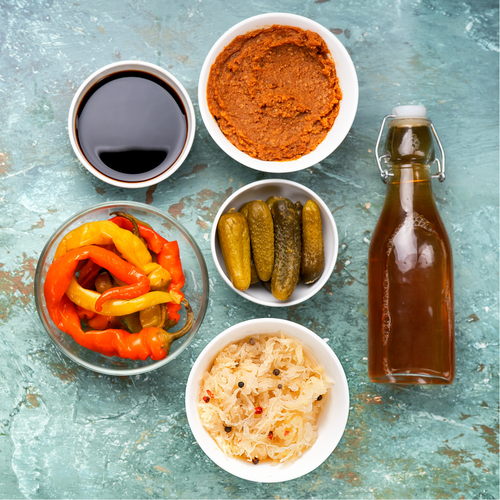Making pleasure a priority in food is essential, which is why it is essential to allow yourself these little moments, which are often moments of celebration, without guilt.
However, nutrition is also synonymous with balance. To stay healthy, overindulgence must remain occasional, especially since it can sometimes be difficult to cope with at the time, particularly when it comes to intestinal comfort.
To better manage these periods of excess, here are some tips:
#1 - Listen to your body
We can't repeat it enough, but your body is constantly sending you signals: hunger, thirst, satiety, the desire to sleep, digestive heaviness, etc. Learning to listen to them is essential, and to avoid being fooled during a meal, taking the time to eat is just as important.
#2 - Constantly hydrate after excess
Holiday meals are often rich in salt and boozy… However, alcohol and salt are known to cause dehydration, so don't hesitate to increase your water intake. You can also spice up your water with the juice of half a lemon to revitalize liver function and help it in its detoxification process, or with herbal teas known for their digestive benefits. These include peppermint, fennel, ginger, anise, verbena…
#3 - Adopt digestive walking
After a big meal, we tend to want to lie down on the couch with our pants unbuttoned. This is the best thing to do if you want to avoid bloating, stomach heaviness, and pain! The progress of food through the digestive tract isn't completely subject to gravity, but it still helps a lot. Instead, opt for digestive walking, which will facilitate digestion by engaging the intestinal muscles.
#4 - Don't skip meals to compensate
There's no point in starving yourself after an overindulgence, except to cause frustration. Again, listen to yourself; if you're hungry, it's because your body is asking for nourishment, and you shouldn't ignore it. Overeating will never make you fat over time; only consistent bad eating habits will.
If you are not hungry at the next meal, you can eat something frugal so as not to break the rhythm of your meals, or to be hungry later between meals.
There is also no point in reducing your plate in advance, at the risk of arriving at the table completely hungry and eating even more than you would normally eat.













